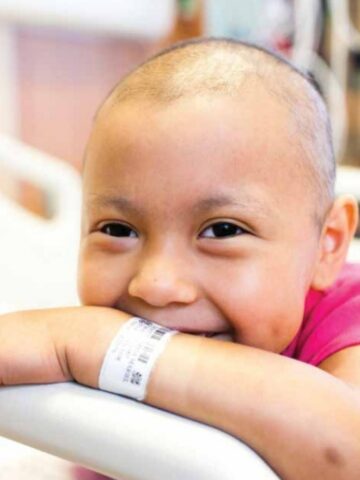The graduate wore pink.
She was so excited she repeatedly tossed around her mother’s phone in the exam room.
On Jan. 19, 2022, Aurora Hernandez, just shy of 18 months old, became the first graduate of CHOC’s Cardiac GI Nutrition Clinic.
Aurora, who was born with significant heart disease, was the clinic’s first patient when it was established a year ago within CHOC’s Heart Institute.
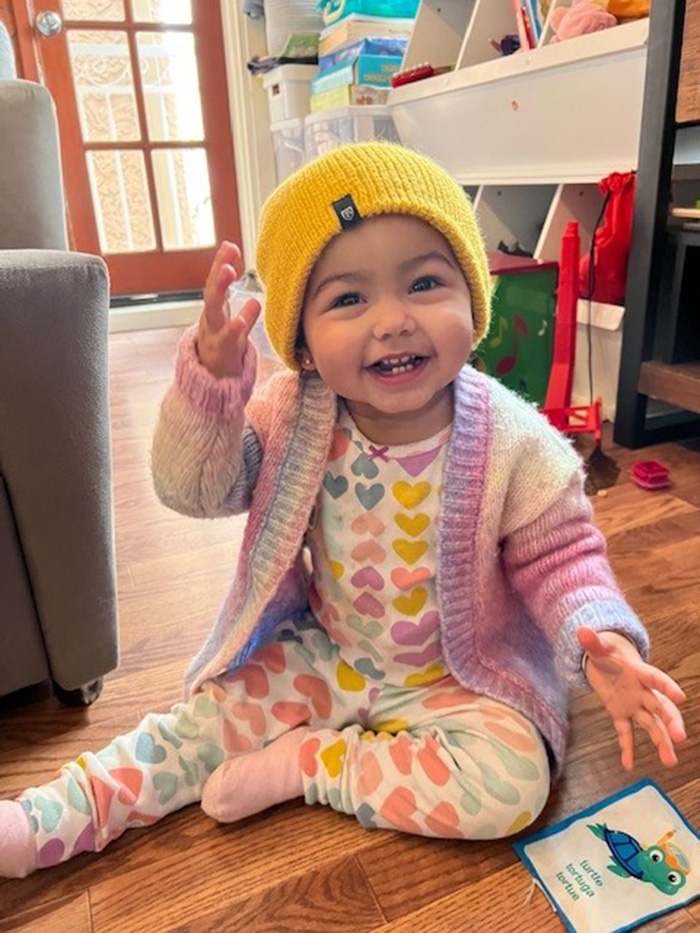
In what clinic team members say is unique among the nation’s leading pediatric healthcare systems, a gastroenterologist works closely with a cardiac nurse practitioner, dietitian, and feeding therapist to determine the best care plan to get babies and toddlers with cardiac problems to optimize their weight gain and wean tube feeding, if appropriate, to encourage eating on their own.
Newborn cardiac patients often experience GI or nutritional and feeding issues.
“The team is amazing,” says Aurora’s mother, Latoya. “It’s so helpful they’re all in the same room at the same time. It’s wonderful to be able to have their undivided attention and talk about any concerns I have.”
Idea of two associates
The Cardiac GI Nutrition Clinic came into being largely because of two associates who joined CHOC around the same time three years ago: dietitian Christina Wright-Yee, MPH, RD, CSP and nurse practitioner Elizabeth Miller, MSN, CPNP.
Christina, RD and Elizabeth, Cardiac NP see patients based on their individual needs along with Dr. Jeffrey Ho, a gastroenterologist and medical director of endoscopy services, and feeding therapist Hema Desai. Patients can meet with the dietitian, the dietitian and the feeding therapist or the entire team. Clinics run twice a week every other week.
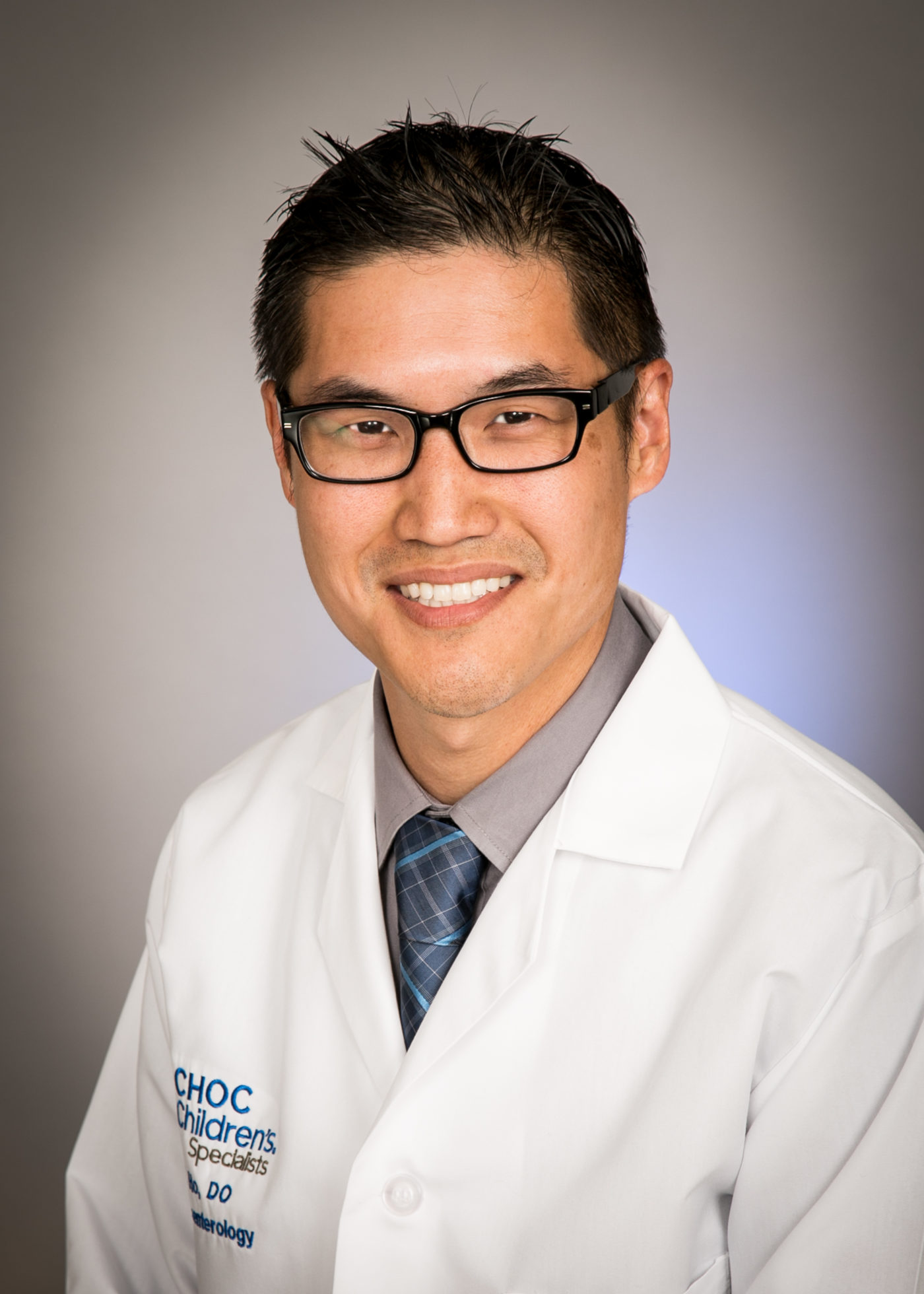
The team treats about 25 patients a month.
“I definitely believe this team is beneficial from both an inpatient and outpatient standpoint,” Dr. Ho says. “Some of these kids need to be watched closely after they’re discharged from the CVICU (cardiovascular intensive care unit) because they struggle to gain weight before and between surgeries and we can help them out. It’s a great service we provide.”
Large hole in the heart
Aurora was born with a complete atrioventricular (AV) canal defect and aortic coarctation – a large hole in her heart affecting all four chambers where they would normally be divided.
Born on July 30, 2020, Aurora has had three heart surgeries – the first when she was 4 months old – and faces more as she grows so the artificial valve in her heart can be dilated.
Her CHOC cardiologist, Dr. Nita Doshi, referred her to the Cardiac GI Nutrition Clinic team when she was around 6 months old – three months after Aurora developed a negative association with food because she would vomit when breastfed or when she took in formula.
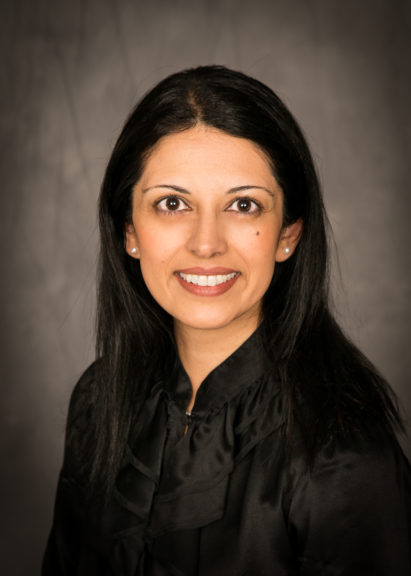
Aurora originally had a nasogastric (NG) tube at birth, but right before her third surgery in April 2021, her parents and team decided a G-tube (a tube placed in her abdomen to receive nutrition directly into her stomach) would be more beneficial.
By the time Aurora graduated from the clinic last month, she had been off her G-tube feedings for nearly two weeks with the help of the team. She now scarfs down chicken breasts, macaroni and cheese and other favorites.
Aurora is super active and “sassy,” says her mother.
She loves to play hide-and-seek with her brother, Atreyu, 3, and chase him around the house. She also loves the beach, dancing, dogs and watching Disney movies.
Creating goals together
Christina and Elizabeth not only saw the need for the clinic at CHOC, but they also were inspired to work on getting one up and running because of the National Pediatric Cardiology Quality Improvement Collaborative (NPC-QIC).
“One of their goals for pediatric hospitals is to increase the access of dietitians and feeding therapists to help promote weight gain and decrease feeding tube dependency in children who have cardiac diseases,” Christina explains.
More than 50 pediatric cardiology care centers in the U.S., including CHOC, are members of NPC-QIC.
The team works to get babies and toddlers to a weight that allows them to get their next surgical procedure done.
“We try to create goals together – it’s a conversation with the parents,” Christina says. “We ask what their goals are for their child, help them set realistic ones and a plan for how we can meet them. Overcoming fears together through education and easy-to-understand explanations helps a lot.”
Elizabeth says that for parents, watching their child struggle to eat is extremely stressful.
“The parents will often say they feel helpless, and for many of them, it feels like a loss of control,” she says. This is especially true when there are other medical procedures that they can’t control.
Helping parents regain a sense of control is one the benefits of the Cardiac GI Nutrition Clinic, team members say.
“We create a long-term plan for them,” Hema says. “And what’s beneficial about having people from multiple disciplines working together is we’re not looking at patients from different silos, but we’re participating in the same conversations.”
Active new graduate
Aurora is a super active child, says her mother.
She loves to play hide-and-seek with her brother, Atreyu, 3, and chase him around the house. She also loves the beach, dancing, dogs, and watching Disney movies.
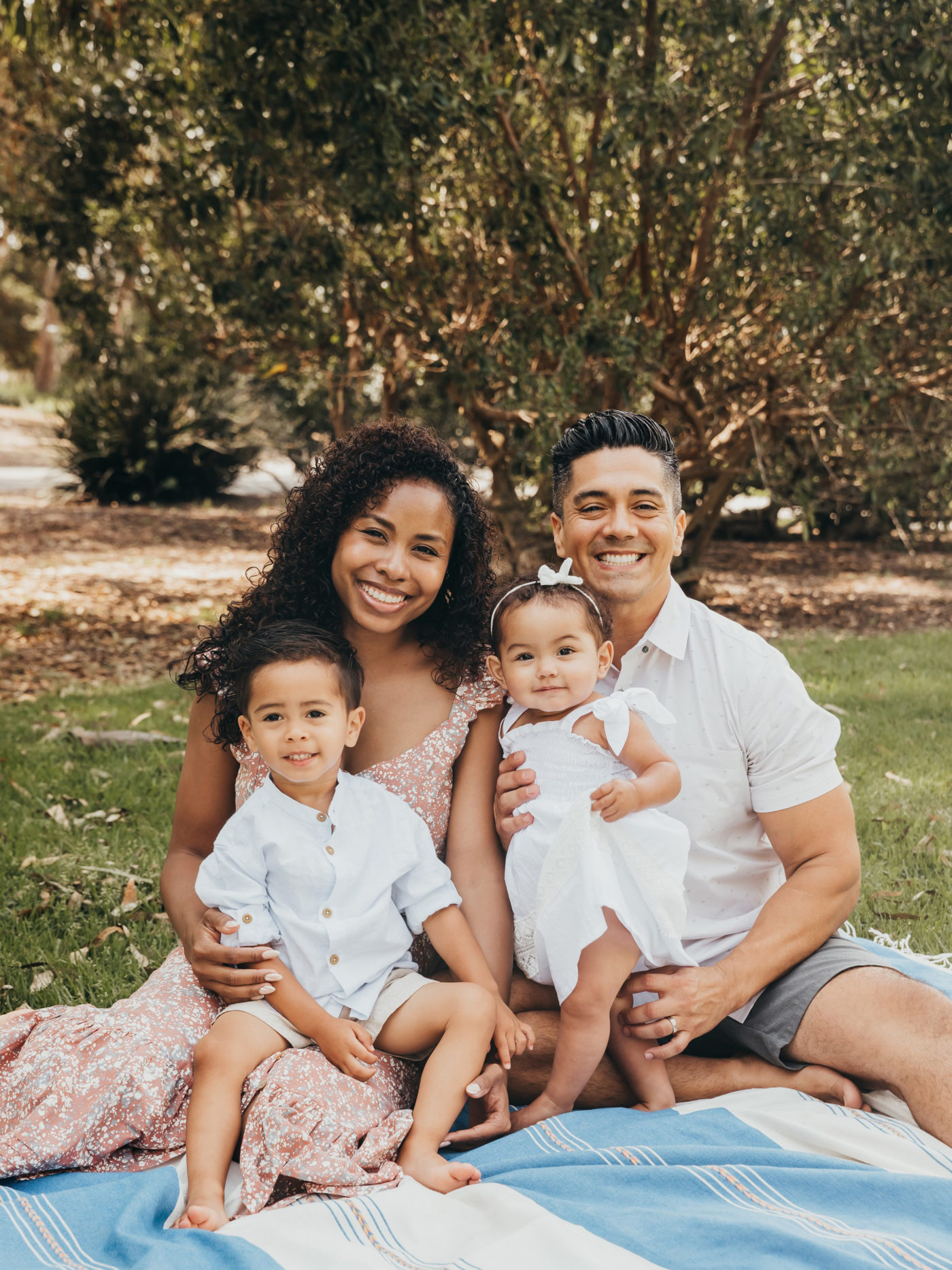
Parents like Latoya and her husband, Abel, couldn’t be happier with the care she received at the Cardiac GI Nutrition Clinic.
“Our experience at CHOC has been nothing short of amazing,” Latoya says. “The cardiac clinic team has become part of our family. They followed Aurora through her journey and were always ready to quickly return a phone call or email.
“I regularly contacted Christina and Dr. Ho about her diet and GI issues. Both were extremely patient and helpful in helping me come up with the best plan to get my daughter to where she is today.”
Refer a patient to CHOC’s GI Nutrition Clinic

